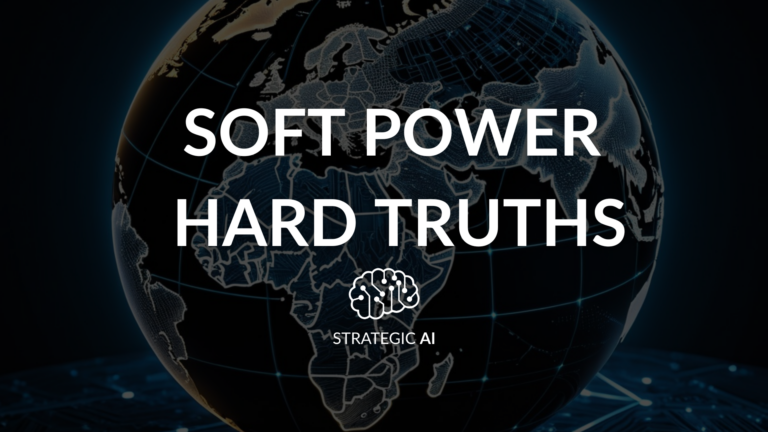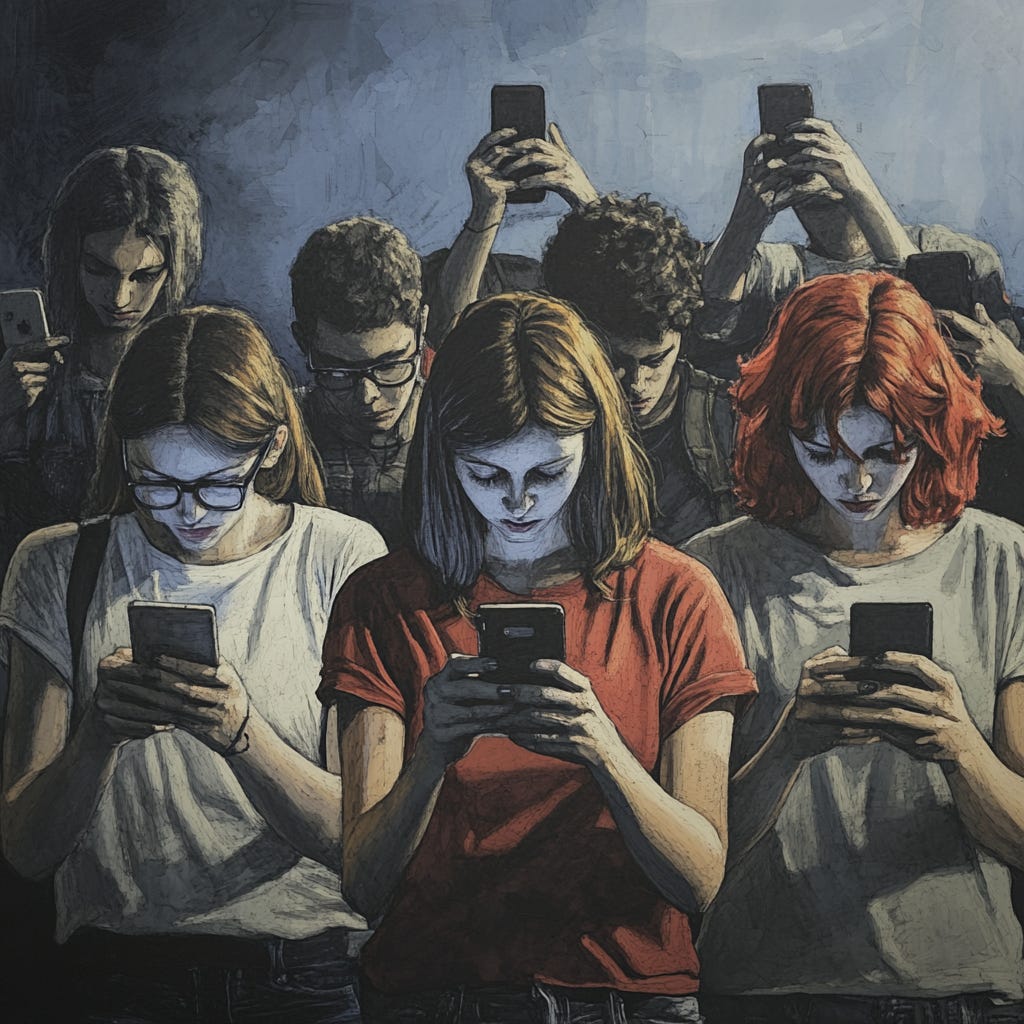
Written by Fola Yahaya

Google launched version 2.0 of its Gemini AI last week. Gemini 2.0’s ‘killer feature’ is being fully multimodal. In laymen’s terms this means it can see in real time where you are and what surrounds you. In the demos, a Google employee walks around London, on his own, asking Gemini such thought-provoking questions as “Hey Gemini, what’s this sculpture called?” (mate, stop being lazy and read the bloody plaque!). In another scene we see a forlorn Google employee pointing his camera at a washing label and, like a teenager talking to his parent, asking the AI what those funny clothing labels mean and how he should wash his clothes!
While much more capable than its clearly rushed version 1.0 (the one with the woke interpretation of history and AI overviews suggesting glue as a pizza topping), what struck me with these demos was that they all involved a single person, clutching their phone like a comfort blanket, asking lazy questions that obviated the need to think. Moreover, the key interaction was with Gemini rather than another person or, worse still, what they were looking at. It reminded me of that old adage about teaching someone to fish and giving them a skill for life that keeps on giving rather than just satisfying an immediate need. This, for me, is one of the ultimate risks of AI, especially for AI natives (those born within the last five years) who will grow up with all their thinking mediated by AI.
Silicon Valley is promoting a very atomised view of a world in which AI does all our thinking for us, we are largely alone (think Zuckerberg’s efforts to push the Metaverse) and we can no longer rely on what we know or see.
Google is circling the wagons and rallying the war chest to, come 2025, reclaim its search crown. Last week’s launch of Gemini 2 also introduced a tool called Deep Research, an AI that once quizzed, can scurry off to the internet and deliver an in-depth research report worthy of any mediocre academic. According to Google:
Doing research online isn’t always easy. Imagine you’re a grad student preparing for your upcoming robotics presentation. You want to get smart on autonomous vehicle sensor trends and understand how different technologies stack up, along with what’s on the horizon. A project like this might take hours of research and cross-referencing a sea of open tabs, that is if you can even find that link you know you put somewhere…
During my PhD, I must have spent about three years criss-crossing London and scouring scant global archives in search of some obscure theoretical framework or data point to support my research. With Deep Research, I needn’t have bothered. No longer would I need to sift through sources, analyse conflicting data or navigate the nuanced arguments that underpinned my field.
However, when AI shortcuts this process, we risk producing academics who arrive at their conclusions without fully engaging with the messy complexities of their subjects. Add to this the built-in cultural biases of these tools, and their no-go zones for politically sensitive topics, and we’re heading for a future in which AI tools will dictate the boundaries of inquiry. Google or its Chinese equivalent will control what can and cannot be researched, resulting in a sanitised intellectual landscape dictated by corporate priorities rather than academic curiosity.
A further risk lies in academia’s slow transformation into an AI-dependent ecosystem. My sense with AI development is that we’re at the very beginning of the beginning. We already have tools that have extended beyond just summarising information and are now capable of hypothesis generation, data analysis and writing credible research papers. As convenience outweighs caution, academia risks becoming less about critical thinking and more about fine-tuning AI-generated outputs.
But the ultimate risk with AI-generated research is that it will add to the increasingly polluted well of human knowledge. To demonstrate how easy it now is to mass produce ‘credible’ research papers, a team of academics used AI to generate 288 totally credible academic finance papers predicting stock returns, complete with plausible theoretical frameworks and citations.
AI-powered search engines that shortcut the research process and spoon-feed us with answers are fine for basic tasks, but for deep research we must be careful that AI doesn’t become an indispensable cognitive crutch.
Not to be outdone by the final release of Sora, Google released Veo 2, its text-to-video generator on Tuesday and it is by far the best on the market. The incredible realism of the above video was generated by the following:
Prompt: The camera floats gently through rows of pastel-painted wooden beehives, buzzing honeybees gliding in and out of frame. The motion settles on the refined farmer standing at the centre, his pristine white beekeeping suit gleaming in the golden afternoon light. He lifts a jar of honey, tilting it slightly to catch the light. Behind him, tall sunflowers sway rhythmically in the breeze, their petals glowing in the warm sunlight. The camera tilts upward to reveal a retro farmhouse with mint-green shutters, its walls dappled with shadows from swaying trees. Shot with a 35mm lens on Kodak Portra 400 film, the golden light creates rich textures on the farmer’s gloves, marmalade jar and weathered wood of the beehives.
In the short space of 18 months, we now have the ability to generate ultrarealistic 4k videos within seconds. The race is on to create user interfaces that allow users to stitch together entire films and ensure character consistency. Sadly, it’s only available to a test cohort of US users but 2025 will clearly be the year of massive and critically production-ready changes to how all film is created.
That’s all for this week. Subscribe for the latest innovations and developments with AI.
So you don’t miss a thing, follow our Instagram and X pages for more creative content and insights into our work and what we do.
In case you missed it, last week’s edition of the Strategic AI newsletter:

Network Hub, 300 Kensal Road, London, W10 5BE, UK
We deliver comprehensive communications strategies that deliver on your organisation’s objectives. Sign up to our newsletter to see the highlights once a quarter.